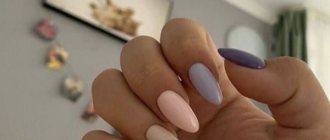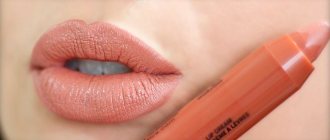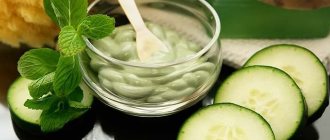Today, the question of why the skin itches in winter can often be found on Internet forums. This problem is familiar to many residents of countries with harsh and temperate climates, who know what the cold season, snow and strong winds mean. As you know, in conditions where cold and dry weather with low humidity prevails, human skin becomes more vulnerable, becomes flaky and cracks. Cold has a destructive effect on the skin and over time, the above symptoms are complicated by intense itching sensations or the so-called winter itch.
What is the winter itch
Winter itching is a pathological condition of human skin, which is manifested by discomfort, an unpleasant burning sensation and the desire to scratch the affected areas of epithelial tissue, mainly on exposed parts of the body, which in winter are directly exposed to dry and cold air. If you answer the question why the skin itches in winter, then it is certainly worth emphasizing that in cold climates, when the air is drier, the covering epithelium dries out, which provokes the development of itchy sensations. The situation is aggravated by staying in heated rooms with a dry microclimate.
Pathological hyperactivity of the skin in winter weather is accompanied by the following symptoms:
- excessive drying of the skin;
- formation of peeling zones on a hyperemic epithelial base;
- itching, burning or tingling of the skin;
- thinning of the affected areas with the appearance of wound surfaces in the form of cracks in the superficial spheres of the skin;
- decreased elasticity and turgor of epithelial tissues;
- reduced skin moisture.
Winter itching is very common in people who go outside in cold weather without gloves, do not use protective creams against frost, or have inherited genetically determined cold intolerance from their parents.
Symptoms of frost rash
It is normal for almost every person that in the cold the surface of exposed skin begins to turn red and tingle a little. Actually, these are all the unpleasant sensations associated with cold. But for people with hypersensitivity, whose mast cells do not work properly, a rash appears from frost, which causes a lot of trouble.
Most often, the main symptoms of a rash from frost begin to appear as soon as a person susceptible to allergic reactions enters a warm room. They can worsen in humid and windy weather, so that a severe allergy is noticeable to the naked eye even on the street.
But it’s still worth identifying the main symptoms of a rash from frost:
- Severe, almost unbearable itching on exposed skin.
- Significant redness of the dermis when exposed to cold.
- The appearance of blisters.
- Minor swelling in exposed areas of skin exposed to cold.
- When consuming cold or icy foods, swelling may occur in the lips, larynx and mouth.
- With a systemic allergic reaction, in addition to redness of the skin, a person experiences severe chills, rapid heart rate, and swelling of the extremities.
- Presyncope or loss of consciousness.
- Malfunctions of the respiratory system.
- Severe dizziness.
At first glance, it seems that the symptoms are not as strong as they might seem. But with all the symptoms combined, a person who is allergic to frost may even die. Therefore, such conditions must be treated with extreme caution and sufficient attention should be paid to when a rash from frost appears.
How to protect yourself from the winter itch
The unpleasant itching that occurs in winter can be prevented by not scratching after every walk in the fresh air in the frosty season. This is not difficult to do if you know the simple rules of taking care of your skin during the winter season.
Here are 10 simple but very effective ways to protect your skin from winter itching:
- You should protect exposed skin from the frosty wind with warm scarves, hats and gloves, as well as a special cream or regular Vaseline, which can be used to lubricate your lips, cheeks, etc. before going outside.
- It is necessary to use moisturizing creams before each bath or shower to prevent skin tightening after water treatments.
- In winter, vitamin D, which is available to everyone without a prescription, will help improve the condition of the skin.
- It is necessary to monitor the air humidity in the room and prevent it from drying out, which has a detrimental effect on human skin, causing it to peel and itch.
- It is very important to avoid hypothermia and not go outside in frosty temperatures of -20 degrees C, which can trigger the development of an inflammatory reaction on the skin or frostbite.
- One of the main provocateurs of the development of itching in winter is the sun. At this time of year, it is especially active, so it can affect the skin, cause irritation and premature aging. To prevent this from happening, experts recommend using creams with photoprotection (SPF factor not lower than 15).
- During winter, a person should avoid taking a hot bath. It is also not recommended to take water procedures using a hard washcloth. These factors contribute to increased skin dryness and itching.
- To avoid itching in winter, it is necessary to monitor the air humidity in the room where a person spends the greatest number of hours during the day. Too dry air “pulls” moisture from the skin and provokes peeling, drying, and itching.
- In winter you should not visit the solarium. Artificial sunlight lamps negatively affect the condition of the skin, cause irritation and, together with other harmful factors, can provoke the formation of cancer cells.
Doctors urge their patients who have sensitive skin to be careful in the choice and frequency of cleansing products they use. Soap should be purchased on a natural basis, which contains moisturizing components.
For the entire period, it is better to avoid cosmetic procedures such as peeling and not expose the skin to unnecessary trauma.
Other common causes of itching for no apparent reason
Itchy skin is not always caused by serious illnesses. This may be a consequence of stress, age-related changes in the body, or a reaction to allergens and medications.
Infection with immunodeficiency virus
HIV does not manifest itself in the body for a long time, and the infected person may not be aware of the disease. But he has signs that indicate immunodeficiency. Skin signs are:
- neoplasms;
- candidiasis;
- herpes virus;
- eczema.
Fungal and viral diseases are accompanied by itching. Most often, herpes affects the mucous membranes, which are very itchy at the initial stage of the disease. Eczema can occur on the hands and face.
Mental disorders: psychogenic itching
Our body is sensitive to stress and anxiety. It often responds with redness in certain areas, itching, and chest pain. If you are sure that you are healthy and there can be no other reason for the itching, try to be less nervous and the itching will go away.
Allergic skin itching in adults and children
Food allergens cause irritation of the intestinal walls, which immediately affects the skin.
Rashes and itching appear. Allergies to cosmetics, shampoos, soaps, and cleaning products may also occur. It is recommended to find the cause and not come into contact with this reagent.
Seasonal itching
For no apparent reason, the body may itch in the fall and spring in patients with vegetative-vascular dystonia. Why this happens cannot be said with certainty. Most likely, this is due to a lack of vitamins in the diet and weather changes.
Dehydration
If your body itches, but there is no visible reason for it, it may be a consequence of dehydration. It is difficult to say why this condition occurs. The reason may be insufficient fluid intake or a large loss of fluid if you were in extreme conditions.
Senile or senile itching
In old age, the body undergoes many changes: metabolism changes, the skin becomes thin and dry, the functioning of the sebaceous glands is disrupted, and cell renewal slows down.
This leads to unpleasant consequences: irritation, peeling, and itching. The skin of the face most often suffers, as it is thinner and more sensitive.
Most often, antibacterial agents and antipruritic ointments are prescribed to get rid of them. Remember that self-medication with ointments alone will not bring results; you need to identify the cause and treat it.
Menopause
During menopause, women's hormonal levels change, which affects the condition of the entire body.
In addition to changes in the sexual sphere, you will feel a change in the condition of your skin and hair. This may include the body itching for no apparent reason.
Why you shouldn’t be afraid of this: as soon as the hormones return to normal, the itching will go away.
To relieve unpleasant symptoms, use moisturizing creams.
Hormonal changes during pregnancy
Pregnant women often have itchy breasts and stomach. These are normal phenomena, as the body is undergoing restructuring. Other parts of the body may also itch.
This should be treated carefully, as itching indicates allergies or diseases of the internal organs. See your doctor to determine the cause of the itching.
Itching of the body as a result of taking medications
If you are being treated with pills or folk remedies, itchy skin may be a side effect.
Read the instructions before diagnosing yourself differently. It is best to replace the medicine that makes your body itchy with a similar one.
Itchy skin can be caused by skin diseases, diseases of internal organs and some other reasons. If you have other symptoms besides itching, consult your doctor.
If there are no apparent reasons, eliminate stress and anxiety from your life, and the itching will go away.
Why the body itches for no apparent reason:
Causes of skin itching:
In winter, the epidermis is exposed to aggressive effects due to unfavorable weather. Frost, wind, sun, sudden changes in temperature have the most negative effect on the condition of the skin. It begins to dry out very much, crack, peel, itch very much, and an unpleasant itch appears. It is in cold weather that you should take special care of it to prevent loss of moisture.
Treatment of itching that occurs in winter
Naturally, winter itching is always easier to prevent than to cure. But what to do if the skin is already red, starting to itch and peel? Fortunately, modern cosmetology, together with dermatological science, is at a level where such skin problems can be successfully treated using special equipment that eliminates itching and flaking of the skin, increasing its moisture and elasticity.
Why should a person with winter itch visit a specialist office? Only an experienced cosmetologist is able to assess the condition of his patient’s skin, the nature of its damage and the severity of pathological changes. In addition to treating winter itching, a specialist will definitely recommend to a person how to care for the skin during the cold season, what protection creams are best to use and how to prevent moisture loss from epithelial cells during sub-zero temperatures.
Winter itching is a problem that a huge number of our fellow citizens face every year.
For some, the unpleasant sensations go away on their own, while for others they can transform into more complex skin ailments, be complicated by infectious agents, or develop into allergies. To prevent this from happening, you should take care of your skin and visit a dermatologist’s office from time to time to assess the general condition of the covering epithelium and prevent its damage.
Have you ever wondered why we constantly scratch our skin? may be due to several reasons.
Review of dry skin care products during the winter season
To strengthen and protect the skin barrier, we recommend always having powerful moisturizing, restorative and protective products on hand for both the face and body.
For face
Night transforming cream-mask for face “Luxury of nutrition”, L'Oréal Paris
Precious argan and rose oils intensively nourish and, in combination with royal jelly and imperata cylindrical extract, help restore the skin's defenses, strengthen its hydrolipid mantle, and prevent moisture loss.
Ultra Facial Cream, Kiehl's
Antarcticin, which is part of this product, helps maintain optimal moisture levels. This substance is a glycoprotein of a microorganism that has the super ability to survive at very low temperatures and therefore provides the skin with protection even under unfavorable temperature conditions.
Triple Lipid Restore, SkinCeuticals
The effect of the cream is due to the combined effect of the three most important skin lipids - ceramides, cholesterol and fatty acids in a high concentration of 2:4:2.
For body
Nourishing body milk “Precious Beauty Milk”, Garnier
Four valuable oils: macadamia, argan, rose and almond provide gentle nourishing care. The skin becomes silky and soft. Although the composition is based on oils, the milk is easily and quickly absorbed, without leaving a feeling of stickiness or an oily film. The wonderful aroma is a nice bonus.
Lipid replenishing balm for face and body Lipikar Baume AP+, La Roche-Posay
The balm is based on Aqua Posae Filiformis, an active component that regulates the natural microflora of the skin. Combined with soothing niacinamide and nourishing shea butter, it restores and strengthens the skin's lipid barrier.
Revitalizing hand cream for very dry skin, CeraVe
Restores and strengthens the skin barrier. To understand why it works, just look at the composition: the product contains a complex of essential ceramides.
Why does my skin itch?
Skin is the largest organ of our body. The skin is constantly exposed to many external factors. Just like other organs, the skin has its own protective mechanisms that help it warn the body about a threat and protect itself from it.
Which we sometimes experience is just a danger signal that our body sends us.
But what can threaten our skin? Many external irritants: dust, contact with hair and clothing, insects, sweat, fragments of leaves and flowers. All this awakens skin receptors, which send an alarm signal to the brain, causing us to experience itching. And we start to itch...
When we scratch our skin, it seems to us that it becomes easier.
But the problem is that this can worsen your condition. Especially if dirt from nails or fingers gets under the skin or we put too much pressure on it. If the itchy skin gets worse or causes pain, it may be the result of an allergic reaction. There are also psychological causes of itching: nervousness, anxiety, etc.
Itchy skin and the most common causes:
- Lack of moisture
- Psoriasis
- Excessive sweating
- Improper hygiene
- Irritation
- Use of harsh chemicals
- Insect bites
- Mites and other microorganisms
- Stress
- Nerves
- Anxiety
- Side effects from medications
- Exposure to low temperatures
Various studies claim that there are neutrons in the brain with a special function: they give a signal when something comes into contact with our skin and could potentially harm us.
In 2007, a group of researchers at the University of Washington in the USA discovered that nerve cells exist
, which are associated only with the control of itching sensations.
The study, conducted by a biologist, psychiatrist and anesthesiologist, was published in the journal Science
.
The stimuli that are associated with itching are controlled by nerve fibers that are located just under the skin throughout the body. They send a signal to the brain through the spinal cord. Then the neurons let us know that “someone is biting” us. Thanks to these same nerve endings, we understand that we feel pain.
To scratch or not to scratch?
When we scratch our skin, we are simply reacting to a strong irritant. This unconscious signal indicates that the skin is irritated. When we comb it, we feel relief. On the other hand, after this the itching may become even stronger.
When we scratch our skin to get rid of the terrible itchy feeling, we scratch a wider area, causing it to become even more inflamed and the itchy area to become larger.
When we cough or sneeze, we are reacting to an impulse that we cannot control. That's why it's useful to understand what factors cause your skin itching and how you can neutralize their influence.
In a study from Wake Forest University (North Carolina, USA), scientists conducted magnetic resonance imaging to understand what happens to the brain when we scratch. Participants were required to use a brush to scratch their leg for 30 seconds and rest for another 30 seconds.
To their surprise, researchers have found that certain parts of the brain associated with unpleasant memories and emotions turn off when we scratch. Perhaps this is what accounts for the feeling of relief and calm after scratching the skin.
Why does my skin itch more in winter?
Many people suffer from severe itchy skin in winter. This is due to the fact that the skin dries out greatly when exposed to low temperatures, snow and wind. This is felt most strongly on the hands and face, which are most often exposed to cold. We also use hot water more often in winter. Temperature contrast dries out the skin, and soaps and detergents can cause dermatitis.
Another reason is that in winter we wear more clothes, so the skin does not breathe. Wool and rough, dense fabrics can also cause itching.
And in order to avoid scratching and injuring the skin again, apply cold compresses to those places where itching is most severe. You can also soak a cloth in chamomile infusion or make a mask from green clay. Don't forget about the benefits for the skin.
Content
in autumn
Autumn is a time of seasonal depression caused by certain chemical processes in the body. Stress promotes the production of the hormone cortisol, which accumulates in the area of the bulbs and causes the muscles to contract, as if lifting the hair.
The problem is that frequent muscle contraction causes poor blood supply and constriction of blood vessels.
You can protect your hair if:
- Minimize the negative impact of environmental factors
: minimize temperature changes, wear a hat, comb your hair carefully and carefully. If you pay increased attention to hair care, stress will have virtually no effect on its condition. - Make your diet balanced
. Hair problems begin with a vitamin deficiency. In the fall, this is especially important, since the body’s internal reserves are used to counteract viruses and other diseases. To eliminate vitamin deficiency, you can resort to natural masks, cosmetic procedures, and also use professional care products.
- avoid temperature changes;
- wear hats if necessary;
- eat right and, if necessary, support the body with vitamin and mineral complexes;
- avoid stressful situations;
- use professional hair cosmetics.
Thus, hair behaves differently at different times of the year. To ensure your curls always remain flawless, you need to familiarize yourself with the recommendations for caring for them and follow them. In this case, your hair will look good, no matter what the weather is like outside.
Why is it that in December your hair not only looks worse and is more difficult to style, but also falls out more? For the same reason that any diseases worsen at the beginning of winter, says hair health specialist, trichologist Vladislav Tkachev. At our request, the doctor examined in detail what causes baldness and how we can combat it.
The first reason is hormonal.
Hormonal-genetic problems are most often to blame for the fact that hair leaves its habitual places. The reason is the body's increased sensitivity to the male hormone. It is he who destroys hair in the forehead and crown area. Many men and some women face this problem. Increased hair loss can also be caused by insufficiency (hypothyroidism) or excess (hyperthyroidism) of the thyroid gland. Only in the first case does a person go bald, and in the second, he simply loses a lot of hair, in replacement of which new ones quickly grow.
What to do.
Contact an endocrinologist who will prescribe hormone replacement therapy. If your hair falls out a little, you can treat it with herbal preparations. Doctors recommend dietary supplements with phytoestrogens for women - with extracts of black cohosh, soybean, angelica, and diascorea. If these remedies do not help, the endocrinologist-gynecologist and trichologist will prescribe more serious hormonal medications. The increased activity of androgens (male hormones) is indicated by increased greasiness in the hair. I want to wash my hair more often, which is what I should do. Otherwise, fat-soluble hormones will accumulate.
The second reason is iron deficiency.
Women face this problem much more often than men. Moreover, the hemoglobin level, judging by blood tests, may be normal, but the body will still suffer from iron deficiency. This is explained by the fact that our body tries to primarily supply the brain and lungs with iron - the most important organs, but at the same time it often saves on skin, hair and nails.
What to do.
Get a special hair test for minerals, as well as a blood test for ferritin and iron. If it turns out that your hair is falling out due to iron deficiency, you need to take iron supplements. In vitamin complexes, the dose of the required microelement is very small. Special monodrug preparations are needed. The doctor will select the necessary remedy, determine the duration of use and dosage.
The third reason is infectious.
After suffering from an illness (flu, acute respiratory infection with high fever, hepatitis), the body takes protective measures - it loses hair. As if saving on hair, it sends active substances to other, more important organs. Experts have long noticed: when everyone starts sneezing and coughing, expect massive hair loss within three months.
What to do.
Nothing. After an illness, the hair will recover on its own. It was this amazing phenomenon that gave rise to the invention of all kinds of folk remedies. Our grandmothers rubbed a lot of things into the scalp - burdock oil, grated onions, garlic, eggs, cognac, vodka... The hair was restored, and popular rumor attributed miraculous powers to the drugs. Unfortunately, grandma’s methods do not help with serious problems, but they always help improve the appearance of the hair - it becomes thick, shiny, and the skin heals a little.
The fourth reason is neurasthenic.
Perhaps the most destructive factor for hair is stress. The most persistent hair loss, doctors say, occurs precisely in a state of neurosis.
What to do.
By and large, such a patient does not need treatment from a trichologist - he needs the help of a psychologist or neurologist. Otherwise, the matter may end in new stress (from rapid hair loss) and depression, which can lead to even more serious problems when hair begins to fall out exponentially. This vicious circle must be broken as soon as possible. Until the neurasthenic calms down, the number of hairs on his head will not increase.
The fifth reason is medicinal.
There are also a number of medications that can cause bald spots. These include blood thinners that prevent blood clots, as well as some hormonal contraceptives and drugs used to lower high blood pressure.
What to do.
Either stop taking the medications, or find a harmless alternative. If you can’t do either one or the other, you have to come to terms with it. After all, health is more valuable.
The sixth reason is dietary.
If a person diligently lost weight and lost 10% of his body weight in two months, then he will definitely have problems with his hair. Even if the fat woman was obese and, while on a diet, she achieved a normal weight. It is known that adipose tissue produces a lot of female hormones. The hair is the first to feel the changed water-fat balance. In addition, having lost a lot of adipose tissue, the body has lost the fat-soluble vitamins and minerals necessary for healthy hair.
What to do.
Lose weight slowly, as you should, under the supervision of a nutritionist. Then no food restrictions will affect your hair. And regularly replenish lost minerals and vitamins. Vitamin complexes that are so popular among people are not suitable for this. There is so much mixed in them that the trace elements they contain often conflict with each other. For example, if someone who is losing weight is deficient in iron and takes it along with calcium or magnesium, it will only make the iron deficiency worse. And taking zinc in combination with iron will aggravate the deficiency of the former. In this case, experts advise taking specific iron or zinc supplements rather than vitamin complexes. And one more piece of advice: the diet should not be low in protein, because hair is 95% keratin.
The seventh reason is seasonal, climate changes, including the change of seasons.
The entire body is forced to adapt to new weather conditions, such as winter. Including our hair.
What to do.
Wait for summer, trying to follow all the tips you read about in this material.
Hair loss is the same natural process as, for example, the renewal of skin cells. Sometimes hair begins to fall out much more actively. This can be caused by aggressive external factors or health problems. But there is also so-called seasonal hair loss, observed during certain periods of the year.
On average, a person’s hair grows by fifteen centimeters per year, that is, approximately one and a half centimeters per month. But it turns out that curls grow differently at different times of the year. For example, in winter they grow much more slowly.
This is not surprising. Look at nature at this time of year, the trees shed their leaves and freeze in anticipation of warm, sunny days. And the growth processes in the human body slow down. It so happened evolutionarily that the primary task of the body in the cold season is to accumulate resources in order not to freeze. Thus, in winter, blood circulation centralizes, when the internal organs and the least peripheral parts of the body, the skin, are most supplied with blood. In conditions of insufficient blood supply to the hair follicles, nutrition and hair growth deteriorate, which is why they fall out.
By the way, people who like to show off without a hat in winter can experience severe hair loss. When a person leaves the room into the cold, a sharp spasm of blood vessels occurs, including the head. As a result, the hair follicles suffer from insufficient blood supply.
How to reduce hair loss in winter?
- Wear a hat. Preference should be given to hats made from natural fabrics. The scalp under a synthetic hat cannot “breathe” normally, the work of the sweat glands increases, which leads to clogging of the mouths of the hair follicles with secretions.
- A sharp change in temperature is the enemy of hair. Wash your hair with warm, not hot water. And even more so, you shouldn’t go outside soon after washing your hair.
- Use special cosmetics designed to care for your hair in winter.
In spring, nature comes alive again. Likewise, in humans, metabolic processes are accelerated and growth processes are enhanced. But often it is in the spring that people face the problem of hair loss. This is often due to a deficiency of minerals. There is nothing surprising. In winter, fresh vegetables, berries and fruits become less accessible. During this period of the year, the human diet is quite monotonous and is mainly represented by cereals, flour, and meat products. Due to such nutrition, the body does not fully receive vitamins and minerals.
Therefore, to prevent hair loss, make sure your diet is varied and nutritious. In some cases, after preliminary consultation with a doctor, a person may be advised to take a vitamin-mineral complex.
It turns out that in the summer our curls grow fastest. But even in the summer, people may experience increased hair loss. What is the main reason? First of all, this is the harmful, aggressive influence of ultraviolet rays. The sun's rays dry out the surface of the hair shaft, depriving it of its strength and also increasing fragility.
In addition, in the summer everyone wants to go to a resort. Here the main danger lies in the influence of sea water on curls. The salt contained in sea water dries out the scalp and hair roots, which can cause hair to break and fall out.
To prevent hair loss in summer you should:
- Use special cosmetics marked UF protection. Especially if you are going to a resort.
- Use hats.
- Rinse your hair thoroughly with fresh water after swimming in the sea.
- Maintain optimal body fluid balance by drinking at least 1.5 liters of water per day.
What is itchy skin
Human skin is penetrated by billions of nerve endings, which are very sensitive to all sorts of irritants: vibration, touch, chemical or thermal effects. A crawling insect, an insect bite, the touch of a feather, a cobweb, or a hair can cause a desire to itch, burning, tingling at the site of irritation: you want to quickly remove this unpleasant sensation by scratching the itchy skin.
Generalized itching - unbearable discomfort in the superficial layers of the dermis - can cause some diseases of the internal organs, allergic reactions due to dermatitis. Among the symptoms of dermatological diseases, skin itching dominates, but scratching syndrome of the anogenital zone, conjunctiva, trachea, pharynx, nose, and oral mucosa often occurs. There is a distinction between itching of the whole body without rash and with rash.
Body itching without rash
Itching all over the body without rashes can occur due to the following diseases:
Rash and itching on the body
When multiple changes occur on the mucous membrane and skin that differ in color, texture, and appearance from normal skin, they indicate a rash. The rash can affect the arms, legs, face, stomach, and chest. These may be primary symptoms - pustules, redness, spots, goosebumps, blisters, pimples, blisters. As the disease progresses, the rash is replaced by secondary elements:
- Loss of natural skin color (discoloration, darkening).
- Erosions and ulcers are the result of opening an abscess with a violation of the integrity of the skin with the capture of subcutaneous fatty tissue.
- Peeling - scales of dead epidermis.
- Crusts are the dried surface of weeping erosion, ulcers, and opened blisters.
- Scratching – superficial or deep abrasions.
- Lichenification – thickening, strengthening of the skin pattern.
It is not worth making a diagnosis on your own, guided by visible signs and information you have read. In case of any suspicious manifestations, you should consult a doctor to identify the underlying internal pathology that caused the scratching. A rash and a strong desire to scratch on the body are accompanied by diseases such as:
Why does my whole body itch?
When the body itches in different places, it is necessary, first of all, to determine the cause of this condition. Perhaps this is a consequence of fungal, allergic, inflammatory skin diseases, pathologies of internal organs, mental disorders and neuropathic diseases. Since there are so many causes, it is important to conduct a thorough diagnosis of the body to determine the root cause.
Allergy
Allergies in the 21st century have become the scourge of humanity. The entire population of the planet suffers from this disease to one degree or another. Allergies manifest themselves in the form of swelling, rashes, scratching, which vary in severity - from light scratching to scratching with the appearance of blood. With allergies and dermatitis, a large amount of histamine accumulates in the skin - a substance that causes scabies, tissue swelling, and dilates blood vessels. Therefore, itchy areas on the skin appear swollen and red.
Allergic itching is eliminated with antihistamines, but then the allergen should be identified and eliminated. A more serious neuroallergic disease is neurodermatitis or atopic dermatitis, which is characterized by uncontrollable, unbearable localized itching. This disease develops from childhood and subsides a little during puberty, but later recurs again. Treatment of diffuse neurodermatitis is long and complex.
Stress
A common cause of itching throughout the body is the development of psychogenic conditions: mental trauma, overstrain of the nervous system, stress, when a person does not control hand movements and constantly scratches and rubs the skin. At the same time, the desire to scratch under stress does not weaken, but, on the contrary, can only intensify. Often, against the background of neuroses, periodic wandering itching occurs, when it is impossible to determine a specific place. It is possible to avoid attacks or reduce their intensity if you eliminate the factors that cause stress.
Seasonal itching
Patients who complain of exacerbation of scabies attacks in spring or autumn can be confidently diagnosed with VSD (vegetative-vascular dystonia). This is due to a lack of vitamins in the body. Vitamin therapy, which should be prescribed by the attending physician, will help eliminate the symptoms. If your whole body itches in winter, you should go to the doctor and find out the reasons for this condition.
Types of skin itching
There is the following classification according to the frequency of relapses and intensity of manifestation:
- Spicy. It is a consequence of pathology in the body.
- Local. It has biological causes - bedbugs, ticks, etc. and is felt in a certain place.
- Generalized. Unpleasant manifestations throughout the body for various reasons. Can be observed in liver, endocrine, dermatological, hematological, neurogenic diseases, oncology.
- Chronic. It occurs for no apparent reason and indicates dermatosis and systemic diseases during an exacerbation.
What to do if your whole body itches
Considering that there is only one itching, but there are many causes, its treatment must be approached differently. What to do if your whole body itches? You can use ointments and creams that can relieve discomfort, but if the causes lie in liver disease or endocrine system disorders, then self-medication with local remedies can only aggravate the problem and complicate further treatment. Indeed, in this case, itching on the skin is just the tip of the iceberg, under which lies a serious illness, possibly fraught with tragic consequences.
Diagnostics
Determining the root cause will require diagnosing the itchy areas. First contact a dermatologist to prescribe tests and a detailed examination. If the dermatologist finds it difficult to name the cause, consultation with a therapist, endocrinologist, allergist, gastroenterologist and other specialists will be required. Principles of treating itchy skin:
- eliminating the cause;
- local treatment;
- systemic treatment.
Drug treatment
Depending on the reasons that caused the unpleasant symptoms, treatment for itching of the body skin is prescribed. For allergic scratching, antihistamines are prescribed: Zyrtec, Loratidine, Erius, Zyrtec, Suprastin, Tavegil. Additionally, it is recommended to take sedatives: Novo-Passit, valerian, mint tea, motherwort tincture, since the constant desire to itch disrupts sleep and makes the patient irritable. Complex manifestations are treated only under the supervision of a doctor.
However, this will take some time, and you want to relieve the itching as quickly as possible. Therefore, there are general recommendations:
- The diet should not contain salty, hot, spicy foods. It is undesirable to drink strong tea, coffee, and alcohol.
- If an elderly person has body itching (senile, worse in the evening and at night), then iodine preparations will alleviate the condition.
- Take warm baths with sea salt.
- Wipe the skin with calendula tincture in alcohol, lubricate with menthol-based antihistamine ointments.
Folk remedies
Along with drug therapy, folk remedies for body itching are used:
- A quick effect is achieved by taking baths with decoctions of plants: nettle, chamomile, mint, celandine, pine needles.
- Pruritoceptive (insect bites) are removed with coconut oil baths. To do this, dissolve 50 g of oil in a water bath and pour into warm water. The procedure time is 15 minutes.
- Lemon juice works great for itching, but it should not be applied to areas with damaged skin.
- Vaseline will help quickly relieve itching, as it will additionally moisturize and soften.
- To soothe irritations, you should use basil. It contains vitamins A, C, P, which are very important for skin health. You need to wipe the irritated areas with a clean fresh leaf or prepare a decoction of basil and make lotions.
- Apple cider vinegar and celandine are used as applications (do not use celandine for chemical or sunburn).
Ways to combat dry skin and itching.
Depending on the reasons that caused dry skin, you need to deal with unpleasant sensations in different ways. And, if the same methods are suitable for purely symptomatic treatment, then the causes of the unpleasant sensations themselves require an individual approach.
Proper skin care in winter
In many cases, excessive drying of the skin and unpleasant sensations on it can be avoided using a set of protective and caring measures that help retain moisture in the epidermis, further protecting it.
When caring for your face and body skin, you should adhere to the following rules:
- When caring for yourself, it is important to follow the sequence of procedures: cleansing, moisturizing, nutrition and protection. Each stage is of greater importance, and you cannot skip or alternate them.
- Alcohol-based cleansers should be avoided. It is very good if they contain thermal water.
- It is not recommended to use foams and mousses in the first half of the day.
- Refuse hard towels in favor of soft ones that do not injure the skin.
- A hot bath should be replaced with a contrast shower.
- It is important to moisturize and nourish the skin of the body after each water procedure.
- You should not use moisturizers before going outside. The moisture particles contained in them can freeze in the cold and injure the epidermis. The cream is applied in 30-40 minutes.
- During winter, special attention should be paid to skin nutrition. The choice should be for caring creams with a high content of vitamins, amino acids and other useful elements.
- For winter, you should stock up on richer skin care products. Their denser texture will provide reliable protection from adverse external influences.
- It is important to regularly use scrubs to remove dead skin cells.
Symptomatic treatment
Dryness can cause severe discomfort and significantly impair the quality of life. In order to avoid itching, it is recommended:
- It is imperative to protect the skin with warm clothing, avoiding severe cooling. You can apply a protective cream to exposed areas of the body.
- Taking vitamins, especially vitamin D, will help avoid vitamin deficiency.
- In a heated room, it is imperative to humidify the air. For this purpose, special air humidifiers are used. But if they are not there, then you can simply hang a wet sheet on the radiator.
- Try to avoid sudden temperature changes. When going outside from a warm room into the cold, the skin always experiences severe stress.
- Strong rays from the sun can affect the skin causing allergies and burns. When exposed to direct sunlight for a long time, it is necessary to protect the epidermis with products specially designed for this purpose.
Self-care for your skin
You can restore the condition of the skin using traditional medicine methods. Self-prepared masks and creams will not only nourish and moisturize the skin, but also relieve irritation and reduce itching.
- Mask made from oatmeal
. To prepare it, you need to mix honey with oatmeal. You also need to add olive oil and raw egg yolk. The prepared mass must be applied and not washed off for a quarter of an hour. - Carrot mask
. To prepare it, you need to mix carrot juice and cottage cheese. Milk may be used. Apply it evenly on the face and neck. After 20 minutes, the mask can be washed off. - Avocado mask.
The avocado pulp is beaten until smooth along with the egg white. For greater effect, you can add olive oil and apple cider vinegar.
Proper nutrition.
Following a diet can alleviate the condition and reduce symptoms. Properly selected nutrition will provide the body with a sufficient amount of vitamins and amino acids, and will also enrich it with useful microelements.
It is recommended to include foods high in vitamin B in your diet. These include: whole grain bread, milk and dairy products, and liver. It is also important to get vitamin C into the body (lemon and other citrus fruits, currants, sauerkraut) and vitamins A and E (Eggs, meat products, nuts, vegetable oils).
If all the procedures do not improve the condition of the skin and it continues to itch, you should consult a doctor to undergo an examination and find out the causes of the possible disease.
Being the largest human organ, the skin reacts to any changes. This can manifest itself in the form of itching, rash, red spots and peeling. There are many reasons. In this article we will take a closer look at the situation when the skin itches in winter.
Sometimes itching is felt on a specific part of the body, on the stomach, back or legs. But there are times when the whole body itches. This causes severe discomfort and irritation. Not understanding why this happens and what to do about it, people begin to panic and immediately run to the doctors. On the one hand, this is a very correct decision, but on the other hand, you can find out the cause yourself and eliminate it.
How to treat body itching
If a diagnosis is made, the disease that became the cause is determined, the appropriate medicine is prescribed for itching of the body skin:
- For renal itching: UVB therapy, Cholestyramine, activated carbon, Thalidomide, Naltrexone, Ondansetron, Capsacin cream, Tavegil.
- Itching due to cholestasis is treated with ursodeoxycholic acid, Cholestyramine, Phenobarbital, Rifampicin, Naloxone, Naltrexone, Nalmefene, Fexadine, Trexyl, Tavegil.
- Endocrine diseases: skin moisturizing, hormonal medications, compensation for diabetes mellitus are necessary.
- Hematological diseases: iron supplements, Aspirin, Cholestyramine, Cimetidine.
- Senile (senile): drugs with a calming effect (sedatives).
Local treatment
Local treatment includes treatment of the skin surface in areas of inflammation. These can be compresses, lotions of 3-5% vinegar, talcum powder, morning and evening hygiene. Among the medications, ointment is effective:
- Lokoid;
- Triderm;
- Ultraproct;
- Belosalik;
- Baneocin;
- hydrocortisone ointment (has a lot of contraindications).
Antihistamines
In the treatment of diseases with manifestations of itching, drugs that block the production of histamine are often used. Antihistamines:
- Atarax. The active ingredient is hydroxyzine hydrochloride.
- Berlicourt. Prescribed to eliminate any signs of allergies. The active ingredient is triamcinolone.
- Desazon. The active ingredient is dexamethasone.
- Diazolin. Prescribed for psoriasis, eczema, urticaria, insect bites.
Etiotropic therapy
This is a treatment aimed at eliminating a microbial, viral, bacterial, infectious pathogen. All antibacterial drugs (antibiotics), sulfonamides, nitrofuran drugs are etiotropic. Etiotropic agents include interferons, antidotes, immune globulins, probiotics, bacteriophages, and anthelmintic drugs. Etiotropic therapy drugs are used for complications of hereditary diseases, poisoning, and herpetic infections of various organs.
How to help your skin in winter with nutrition?
Be sure to pay attention to your diet. If your skin gets dry and itchy in winter, take vitamin-mineral complexes. They should be especially rich in retinol, vitamin E, ascorbic acid, niacin, biotin, beta-carotene, flavonoids, vitamin D, rutin, Omega-3 unsaturated fatty acids, selenium and zinc. The course of taking such a dietary supplement should be at least 2 months.
And of course, if your skin is dry and itchy in winter, urgently review your daily diet. Add more vegetables, fruits, fermented milk products, and vegetable oils. In winter, place special emphasis on sources:
- vitamins and minerals - citrus fruits, kiwi, apples, dried fruits, oatmeal, millet, frozen blueberries and cranberries, cabbage, carrots, onions, garlic, algae (kelp, chlorella, spirulina);
- polyunsaturated fats - sea fish, flaxseed oil, nuts, seeds;
- bifidobacteria and amino acids - yogurt, kefir, cottage cheese, cheeses.
If dry and itchy skin in winter is an allergic reaction to cold, take an antihistamine or adsorbent (Polysorb, activated carbon) to eliminate the reaction. Better yet, consult a doctor.
How to remove body itching at home
Treatment at home is aimed at eliminating the symptoms, but you need to work with your doctor to combat the cause of the strong desire to scratch the skin. As temporary help you can use:
- Burdock roots. You need already dried roots to then obtain the powder using a coffee grinder. Pour 2 tbsp into a saucepan. l. powder, pour 1 liter of water. Cook for half an hour. When it cools down, you can make gauze compresses by applying to the irritated area. The effect should occur within half an hour.
- Alcohol tincture of elecampane. You can prepare it at home, for which you take 1 tbsp. l. finely chopped roots, pour them into a suitable dark glass bottle, add 50 ml of alcohol. The tincture is prepared for 10 days, after which you need to make an aqueous solution with the tincture and wipe the itchy skin. According to people's reviews, the effect occurs immediately.
- Needles. You will need young buds and pine needles in the amount of one glass. Pour a liter of boiling water over them and simmer over low heat for 20 minutes. Wash with the cooled broth, wipe the skin, make compresses and lotions. The result is felt quickly.









